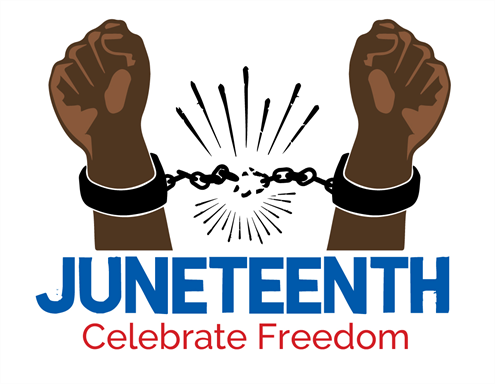WHAT JUNETEENTH MEANS TO ME

Photo: Twitter

Ten years ago I met Ed and Vira Cage at a Juneteenth Family Fun Day they had organized that took place in Groff Park. I went to check out the event because Juneteenth was a personally meaningful holiday for my family but upon moving to Massachusetts, I had resigned myself that no one up here really had a clue about Juneteenth, much less was interested in celebrating on that day. The Cage Family was different. They had no direct connection to Juneteenth as a holiday and had never really celebrated it before, but they were looking to organize something to help build a sense of community of black folks, particularly where they lived in Southpoint Apartments. Ed grew up in Springfield, MA, with family roots in Louisiana, and Vira grew up in Boston, with family roots in Laos. As their organizing proceeded, however, they found out the Saturday they chose for their event fell on the 19th and that it was a black historical day of celebration (that had begun to be celebrated outside of Texas) and so they named their event a Juneteenth celebration. We met there and began a journey toward becoming family.
They invited us to co-organize future Juneteenth celebrations and pushed me and my partner Demetria to deepen the historical content of the event given that we both had been born in Texas and had longstanding ties to the day as a holiday. Demetria was born on Galveston Island where General Granger, a military officer representing the armed forces of the U.S. government, read out the proclamation that demanded an end to enslavement of Africans and that treatment of them as human beings, especially as wage laborers, had to begin henceforward from June 19, 1865. This proclamation came from someone in charge of units of the recently victorious army that had defeated the Confederate States of America. Ignoring his words would be met with the force of arms he commanded. Freedom was not being “given” to Africans it was being imposed by military might. Resistance was futile. For the thousands of unarmed Africans who had been at the mercy of their masters, this militarily backed announcement was welcomed with jubilation and would be marked every year by taking the day off, having a picnic with good eats and red soda water, music and mirth, and sometimes with political speeches of candidates seeking votes who would often pay for the BBQ to get the chance to ask for votes from men enfranchised by the 15th amendment to the Constitution.
I do not recall my family consciously celebrating on June 19th when I was growing up, but when I went to college in Austin, Texas, at 17, I found many people celebrating Juneteenth in the traditional ways. By the late 1970s, there was a big revival of Juneteenth that was very much a Texas-style manifestation of the Black Power and Black Arts Movement going on elsewhere in the country. A state legislator from Houston, TX, put forward a bill to make the day a state holiday and thus the journey of the day into the political imaginary of Black Folks was underway. In the 1990s, the holiday began to migrate out of Texas and received a boost when a former Texas Governor moved into the White House in 2000. President George W. Bush, in 2002, observed: “The celebration of Juneteenth has its roots in Texas, but the holiday is now observed in many parts of the country with picnics, family gatherings, parades, and community programs. The day is a fitting time to celebrate freedom from slavery and for all Americans to reflect on the rich contributions of African Americans to our Nation.” Bush made wonderful proclamations like this from the White House but he never did more than pay lip service to the idea of declaring Juneteenth a national holiday.
Still we soldiered on and here in Amherst we held Juneteenth programs on the Town Common, at Kendrick Park (when our day overlapped with the Taste of Amherst), back to Groff, as well as from the steps of Town Hall to the Jones Library last year. In all these we have fed people good food, had live music, African drumming and dancing, soulful storytelling, marches, proclamations, hula hooping, theatrical performances, and more. We have enjoyed fruitful partnerships with the Leisure Services, the Human Rights Commission, Special Collections at the Jones Library, Citizen’s for Race Amity Now, as well as building a regional set of events with the Pan-African Historical Museum USA and Arise for Social Justice in Springfield.
We are going virtual for our 10th annual celebration with Reparations as this year’s theme. We are hosting an online discussion of From Here to Equality: Reparations for Black Americans in the 21st Century an important new book by William A. Darity Jr. & A. Kirsten Mullen. The book conversation will begin at 4:30 p.m. ET that can be viewed on Amherst Media’s Channel 12 online and on cable television. Details can be found here .
Amilcar Shabazz is a Professor of Afro-American Studies at the University of Massachusetts and the President of the National Council for Black Studies.

1 thought on “WHAT JUNETEENTH MEANS TO ME”